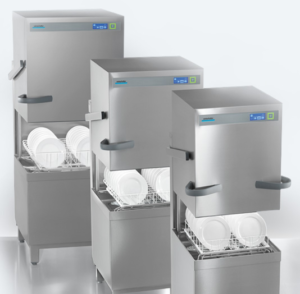
Technology has taken over a significant part of the day-to-day activities commonly associated with the hospitality industry. The last twenty years have seen a growth in technology that has opened the world to new possibilities. Many sectors are now welcoming new technology to increase efficiency and cut down on wastage.
The food service industry has not been left behind with this new shift. In a bid to match the world’s pace, the foodservice industry has embraced different technologies to inject new elements to their businesses and make them stand out from the crowd.
Considering these developments, will new technology have a lasting impact on this important industry?
The Dawn of Cashless Food Service
Currently, food catering services are taking the road to cashless transactions. Such payments are usually seamless and safe for both the customers and the service providers. Their benefits are endless. They deter thieves whilst making it easier for the cashiers to handle transactions; eliminating the need to count money at the end of the day, or carry it to banks for deposit.
Some bars in Europe have made the move, and it is no doubt that the near future might see restaurants and food catering services follow the cue and take up cashless transactions.
Cryptocurrency has also made significant impressions with a number of businesses taking it as

There are apps that facilitate the payment of goods and services through Bitcoin and other cryptocurrencies. Such growth might enable stakeholders in the hospitality and catering sector to incorporate it into their forms of payment. It is, therefore, a great time for players in the foodservice industry to consider such options.
Accessories and Catering Services
Accessories have also started to feature in the food catering scene. One of the most expensive expenditures for restaurant owners is usually the payment of staff. However, accessories such as Prosecco buttons which allow you to ask for wine without having to interact with staff have also created room for other developments in the food catering business. The novelty factor is also a huge draw.
Such accessories could play a huge role in cutting back on the time taken to process orders in a food establishment. Their ability to reduce human labour as well as allow more accuracy in the delivery of foods will make them endearing to restaurant owners.
Technology in the Commercial Kitchen
Nowadays, technology in the kitchen is not simply resigned to a fridge, microwave, and other common equipment. In fact, even the traditional equipment in the kitchen has come a long way technologically and is able to perform more than just the common services.

Commercial kitchens are now using connected gadgets to prepare and deliver food to their customers. Equipment such as coffee makers that can order fresh coffee online for restocking are already on the market. Some use Alexa to fulfil coffee orders and create a smooth experience for its users. Commercial warewashers now do more than just cleaning. Winterhalter, for example, offer a 'Connected Wash' option to network equipment and achieve precision cleaning with ultimate efficiency. There are even refrigerators which are designed to ping your phone if you accidentally leave the door open.
More and more manufacturers are making use of the advancement in computer graphics, using CAD programs and submitting BIM drawings as a method to fully utilise the space available and create more efficient kitchen layouts.
The technology has oozed out of the kitchen and will soon be interacting with customers in the restaurants. Robots as part of catering service could make things easier for restaurant owners. Considering their consistency and accuracy, they are more likely to enhance the restaurant experience.
Technology and Food Delivery
Tech giants are in a race to create the most efficient driverless cars. Some food delivery companies have already started investigating ways to take advantage of this emerging technology. Considering the potential reduction in manpower by utilising robotic delivery or driverless cars, such technologies might be welcomed in restaurants and the foodservice industry.

Companies like Dominos have created systems that allow customers to order pizza by simply tweeting an emoji of a pizza. This form of technological advancement enables customers to interact with businesses with minimal effort.
It’s worth noting however, that not all people would be happy with a faceless service. Some prefer that personal touch, meaning that such technology might not be suitable for everyone. This raises the ethical question, just because you can automate something, should you?
Virtual assistance is also an emerging trend in the food catering service. You no longer need to interact with a human being when ordering your food items. Technologies such as Alexa, Amazons virtual assistant, work with companies such as GrubHub to allow quick and simple re-order from your previous order history. Could this be a developing trend with restaurants and food joints?
Virtual Reality and Food Service
Some businesses are experimenting with creating different realities for customers in restaurants. Developing on Heston Blumenthal’ multisensory approach to food, could altering reality bring new elements to the dining sector. Establishments such as KFC have tested virtual reality to try and enhance customer experience. The prices of materials to make this a reality keep falling which might make it possible for more restaurants to pick up the trend in the future.
What This Means to Commercial Kitchens and Restaurants
Change and advancement is inevitable. More people are realising the importance of technology and how beneficial it can be for businesses. Dominant players in the restaurant and food catering industries have already taken up the challenge in order to reach more people.
Therefore, it is not an inconceivable idea to find more trends emerging that will fully modernise the food service industry in 2019 and beyond.
